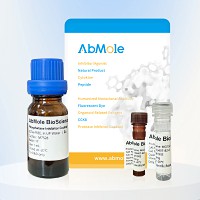
Expression host: HEK-293 cells
Purity: > 95%. Sds-page gel and HIGH performance liquid chromatography were used
Endotoxin: < 0.01EU/μg
Storage and stability: stored at 2~8℃, valid for 24 months. In case of separate packaging, store in -20℃ storage period of 6 months, -80℃ storage period of 12 months, avoid repeated freeze-thaw.
Biological activity: CD137 (also known as 4-1BB) is an inducible cell surface receptor, a member of the tumornecrosis factor receptor (TNFR) superfamily. It is encoded by tumor necrosis factor receptor superfamily member 9 (TNFRSF9) gene. It is widely expressed on the surface of activated T cells, NK cells and other human immune cells. Its ligand is CD137L, also a member of TNFSF, and is an inducible costimulatory receptor expressed on activated CD4+ and CD8+ T cells, NKT, NK cells, DC, macrophages, eosinophils, neutrophils, and mast cells, especially on CD8+ T cells. CD137/CD137L modulates T cell-mediated immune responses by transmitting activation, proliferation, or apoptosis signals between immune cells. Activated signal transduction of CD137 stimulates NK and T cell proliferation and produces antitumor activity, as well as long-lasting memory responses. Activated 4-1BB mab was used to activate 4-1BB, which recruited TNFR-related factors TRAF1 and TRAF2 to form heterotrimers. Signal transduction was enhanced through C-Jun N-terminal kinase (JNK) pathway and extracellular signal-regulated kinase (ERK) pathway. The main transcription factor NF-κB regulates the 4-1BB signal, stimulates T cells and antigen presenting cells to proliferate and secrete cytokines, and improves the level of anti-tumor immune response.
| Storage | 2-8℃ |
| Species | Mouse | Rat | Rabbit | Guinea pig | Hamster | Dog |
| Weight (kg) | 0.02 | 0.15 | 1.8 | 0.4 | 0.08 | 10 |
| Body Surface Area (m2) | 0.007 | 0.025 | 0.15 | 0.05 | 0.02 | 0.5 |
| Km factor | 3 | 6 | 12 | 8 | 5 | 20 |
| Animal A (mg/kg) = Animal B (mg/kg) multiplied by | Animal B Km |
| Animal A Km |
For example, to modify the dose of Compound A used for a mouse (20 mg/kg) to a dose based on the BSA for a rat, multiply 20 mg/kg by the Km factor for a mouse and then divide by the Km factor for a rat. This calculation results in a rat equivalent dose for Compound A of 10 mg/kg.
| Related Recombinant Proteins Products |
|---|
| Recombinant Human Serpin A12 (E.coli, N-GST)
Vaspin (Visceral Adipose-Specific SERPIN) is a newly described adipokine. Vaspin is also a unique insulin sensitizing adipocytokine in obesity. |
| Recombinant Human B2M Protein (Mammalian, C-6His)
β-2-Microglobulin (B2M) is a secreted protein with 1 Ig-like C1-type (immunoglobulin-like) domain which belongs to the beta-2-microglobulin family. B2M may adopt the fibrillar configuration of amyloid in certain pathologic states. |
| Recombinant Mouse E-Selectin/CD62E Protein (HEK293)
E-selectin, also known as endothelial leukocyte adhesion molecule-1 (ELAM-1) and CD62E, is an inducible adhesion molecule that is expressed on the surfaces of stimulated vascular endothelial cells and is sometimes involved in cancer cell metastasis. |
| Recombinant Human DPP4/CD26 (Mammalian, C-6His)
DPP4/CD26 is a signal-anchor for type II membrane protein that belongs to the peptidase S9B family. DPP4/CD26 acts as a positive regulator of T-cell coactivation, by binding at least ADA, CAV1, IGF2R, and PTPRC. It’s binding to CAV1 and CARD11 induces T-cell proliferation and NF-kappa-B activation in a T-cell receptor/CD3-dependent manner. |
| Recombinant Human USP14 (E.coli, N-6His)
USP14 belongs to the ubiquitin-specific processing (USP) family which is a deubiquitinating enzyme (DUB) with His and Cys domains. USP14 acts also as a physiological inhibitor of endoplasmic reticulum-associated degradation (ERAD) under the non-stressed condition by inhibiting the degradation of unfolded endoplasmic reticulum proteins via interaction with ERN1. |


Products are for research use only. Not for human use. We do not sell to patients.
© Copyright 2010-2023 AbMole BioScience. All Rights Reserved.
